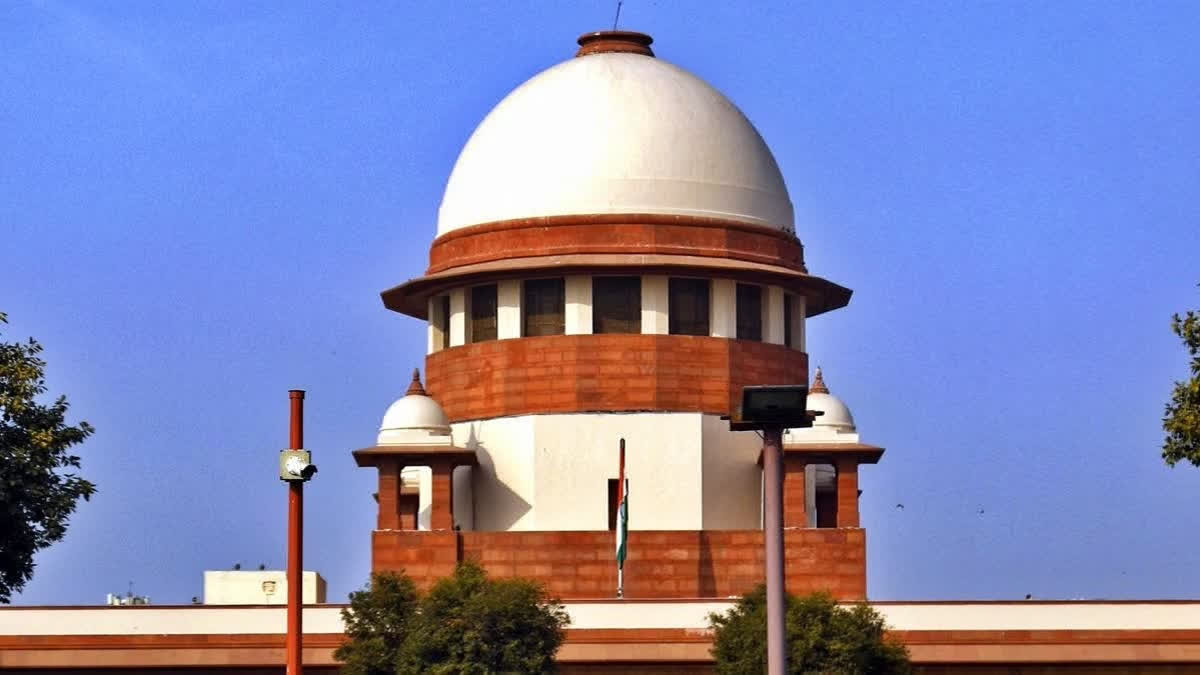New Delhi: The Supreme Court Wednesday indicated that it may refer to a seven-judge bench a batch of pleas challenging the constitutional validity of the IPC provision on sedition. In September this year, Centre had told the apex court that the sedition provision has been revised in the new proposed penal code, which at present is pending consideration of a parliamentary standing committee.
A bench led by Chief Justice of India D Y Chandrachud said he would constitute an appropriate bench to hear the matter and appointed advocates Prasanna S and Pooja Dhar as nodal counsel to facilitate the compilation of case laws and other statutory material before the hearing.
Senior advocate Gopal Sankaranarayanan contended before the bench that he is pressing for seven judges as this would require reconsidering the decision in Kedarnath (1962). The bench said it will list the matter in January 2024.
On September 12, the Supreme Court had said it will refer the challenge to the validity of the sedition law under the Indian Penal Code to a constitution bench of at least five judges. The apex court had then declined to entertain Centre's request to defer examining validity of sedition provision under Section 124A of IPC, until the new penal law comes into the final shape.
In September, Attorney General (AG) R Venkataramani and Solicitor General (SG) Tushar Mehta, both represented the Centre, before the apex court. The Centre’s counsel contended that the sedition provision has been revised in the new proposed penal code, which at present is pending consideration of a parliamentary standing committee.
A three-judge bench led by CJI had noted that it is submitted that a new law on sedition is referred to the standing committee which will replace the penal code. It was argued before the court that the enactment of a new law will not obviate the challenge to the constitutionality of 124A because a penal law cannot be retrospective.
The top court declined the request of AG and SG to defer the hearing the challenge to constitutional validity of 124A, “for more than one reason…124A continues to be on statute book and the new law in a penal statute will have only prospective effect and that validity of the prosecution remains till 124A remains and the challenge needs to be assessed thus…..”.
Senior advocate Kapil Sibal, representing one of the petitioners, had then submitted that the matter may be referred to a 5-judge bench to reconsider Kedarnath Singh case (five-judge bench judgment) or the present bench of three judges can decide it itself.
The bench said it will have to form a 5-judge bench since a 5-judge bench judgment is binding on it. The AG had said the new law is there and it is sent to a parliamentary standing committee. Sibal submitted that the new law is much worse and the prosecutions will go on. The AG insisted that the parliamentary committee is looking into it and on such important issues the court can wait.
Sibal said let the 5-judge bench hear the case and decide if it needs to be heard by a seven- judge bench. After hearing submissions, the bench had said, “in our view, the appropriate course of action will be to place the papers before the CJI so that case can be heard by a bench of at least five-judges, since Kedarnath Singh was a constitution bench judgment. We direct the registry to place the papers before CJI for directions….”.
The bench noted that five-judges can explain reference better and restrict the manner of implementation and the constitution bench can either interpret Kedarnath Singh to bring it into conformity with current developments or refer it to a 7-judge bench.



